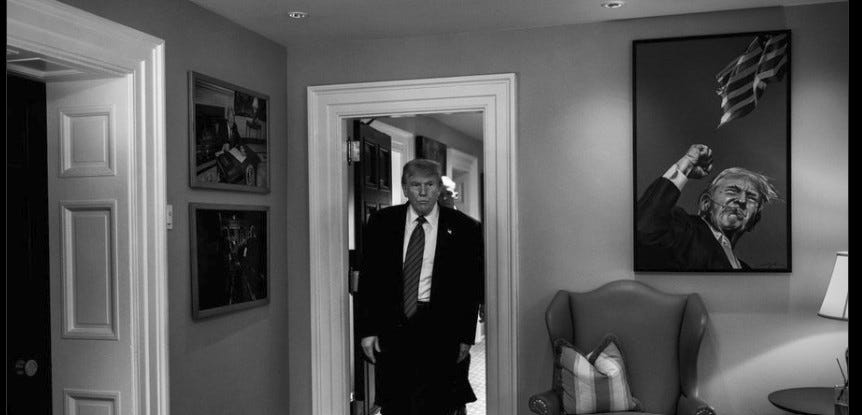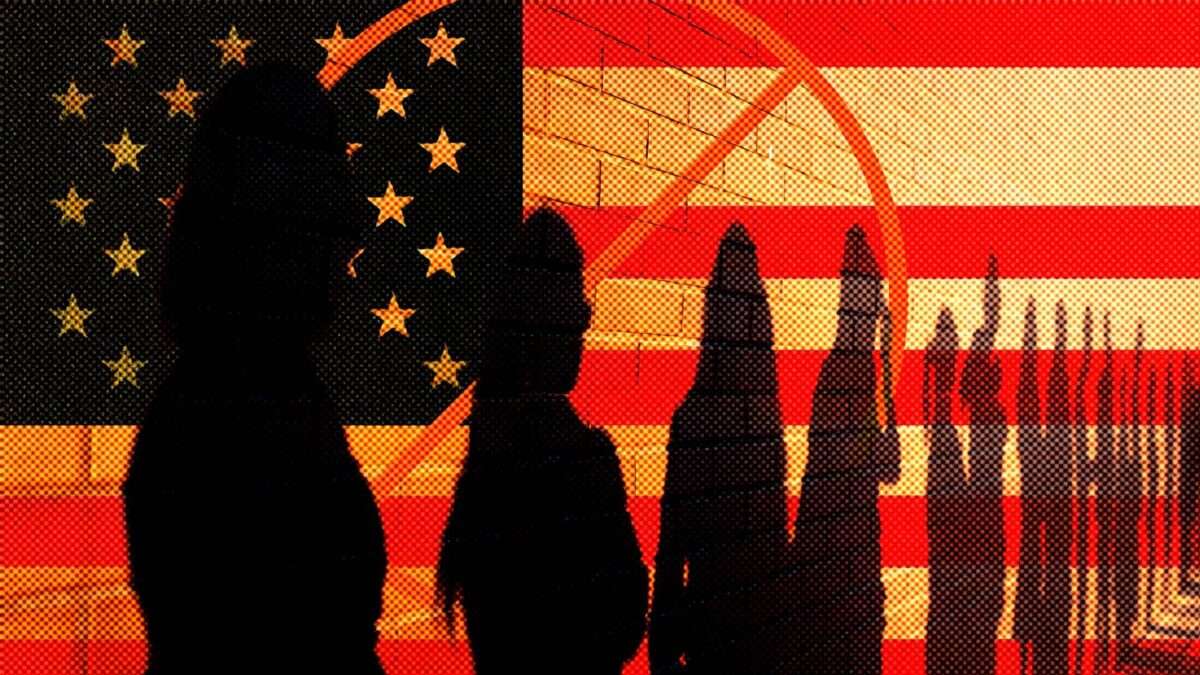Shiloh Hendrix is a white woman, a mother, and the main character of an extremely fraught social media controversy. She did a very bad and racist thing, endured subsequent cancellation, and has now reaped a financial windfall—earning both condemnation and approval from various corners of the internet. For some, Hendrix is the final boss of cancel culture; for others, she is a symptom of a very broken, toxic culture.
Here are the details, which are not really in dispute: Hendrix was at a playground in Rochester, Minnesota, with her infant. She claims that a black child went through her things and tried to take "her stuff"; in response, she called him a racial slur. A bystander—a black man unrelated to the child—then began to film her on his phone. In that video, she confirmed that she used the slur and then called the guy recording the video a slur as well.
You can guess what happened next. The video went viral on social media, and Hendrix's racist rant earned her no shortage of opprobrium. Here's the wrinkle: Next, Hendrix created a fundraising campaign called "Help Protect My Family," in which she asked for donations to help her move. The fundraiser has earned over $700,000.
The prospect of hundreds or thousands of people giving money to a woman because she engaged in racist speech is extremely unpleasant. But The Daily Wire's Matt Walsh thinks this is a fitting outcome.
"I'm glad she raised half a million dollars," he said. "I hope she raises half a million more."
Why? Walsh suggests that if canceled individuals can turn around and fundraise off being canceled, it could be the end of cancel culture: Participants in social media mobs will have a diminished incentive to work themselves into such fervors. Walsh and other right-wing commentators who have defended the fundraiser—if not Hendrix's overall conduct—have also drawn a connection to the case of Karmelo Anthony, a black teenager accused of fatally stabbing a white track athlete. Anthony's family also launched a fundraiser, earning half a million in donations.
Using a perverse and explicitly identitarian framework, Hendrix defenders suggested that if it is OK for a black teenager accused of murder to accept donations, it is OK for a white woman accused of racism to accept donations—even though the two cases are not connected whatsoever.
I have some thoughts.
First off, it's possible to simply condemn every aspect of the Hendrix story without trying to spin one person's behavior as worse than another's. It was just bad—all of it. As I wrote on X: The kid should not have gone through Hendrix's things, and her response was wrong and odious. The bystander should not have escalated things by recording Hendrix, and she should not have escalated further by engaging him and once again using a slur. The video should never have been posted to social media, and anyone who threatened Hendrix or her family as a result is also in the wrong. Starting a fundraiser was bad, and contributing to the fundraiser is bad. It's just all bad!
The Battle of Shiloh
Another reason to resist the temptation to defend any of this—but in particular the fundraiser—is that this absolutely will not spell the end of cancel culture. Cellphones are now ubiquitous; it is trivially easy to record someone during a moment of conflict, embarrassment, or turpitude, and publicize the footage on social media. My previous experiences with short, occasionally misleading social media videos have taught me to be extremely cautious about passing judgment on incidents that lack context. But most people can't help themselves.
The idea that it is proper to donate to Hendrix as some primitive form of racial revenge in response to the Anthony fundraiser is also extremely suspect. Even uttering it aloud makes you sound like a crazy person: I am giving $20 to a lady who said something racist because this other guy allegedly murdered someone else, and he raised money, too. This is not fundamentally different than rationalizing such a donation under the logic of The voices in my head told me to do it.
Additionally, what if the people giving money to Anthony end up using the same justification—that it wasn't about supporting Anthony, but rather, it was payback for some other fundraiser?
Writing for National Review, Abigail Anthony—no relation to Karmelo Anthony—seems to endorse the Walsh line.
"The stance is clear: If you summon an internet army to ruin someone's life, even someone who has done something objectively bad, we're going to provide significant support, so don't bother doing it again," she writes.
This is wishful thinking. The creation of a financial support network for victims of online mobs is not going to make mob behavior less appealing to anyone.
For further analysis, I discussed this case with Emily Jashinsky of Undercurrents. Watch below.
This Week on Free Media
I am joined by Amber Duke to discuss President Donald Trump's thoughts on cheap goods, reopening Alcatraz, Anthony Fauci's beagle experiments, and AI friends.
Worth Watching
I have now watched most, though not all, of the new season of Andor on Disney+. It is so good I can scarcely believe it exists. It's so much better than any other Star Wars thing spawned by Disney. There are many reasons for that, but I think the main one is that Andor has succeeded at something no other Star Wars property has really pulled off: It makes the Empire seem absolutely despicable. Viewers get to see the cruel deprivations of liberty suffered by the common citizens of the Empire on planet after planet. Most other Star Wars shows and movies depict the military confrontations between various rebel groups and Imperial forces, or make the threat of the Empire so high-stakes and remote that it's almost more difficult to be invested in it. With Andor, there's something brutally effective about watching Imperial soldiers bully regular working people. You end up really hating these jerks.
The post Is Shiloh Hendrix Really the End of Cancel Culture? appeared first on Reason.com.













 Bengali (Bangladesh) ·
Bengali (Bangladesh) ·  English (United States) ·
English (United States) ·